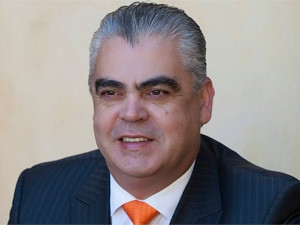
Acting CEO of third operator Cell C Jose Dos Santos has lashed out at MTN in an opinion piece, following legal intervention the company instituted that has delayed the introduction of lower inter-network fees.
This comes after the Independent Communications Authority of SA (ICASA) last week postponed the application of new mobile termination rates (MTRs) - set to take effect next month - to May.
On 12 February MTN served an urgent application to the High Court on ICASA for an interim order suspending the bulk of the provisions of the authority's 2014 Call Termination Regulations, pending the outcome of final review proceedings in which MTN seeks to review and have set aside those same provisions.
The case was scheduled to be heard on 25 February, but ICASA says it will request a later date.
MTN stamps on low prices
Dos Santos says: "Dominant incumbents are typically defensive when any attempt is made to curb their otherwise abusive behaviour, but isn't MTN taking it a bit far?
"Not content to make 'super-normal profits' (more than normal profits, or the amount of revenue generated after paying costs, by a monopoly) for nearly 15 years, MTN wants to choke the consumer further by refusing to accept regulatory intervention under law, by the sector regulator, ICASA.
"As Research ICT Africa has repeatedly shown, prices to communicate in SA are abnormally high. The prices for communications charged by MTN and Vodacom specifically are excessive when compared with the prices of similar operators elsewhere in Africa.
"MTN not only holds more than 35% of the entire mobile market by revenue in SA, but holds significant shares in international operations throughout Africa and the Middle East. Operating under regulatory scrutiny is therefore nothing new for MTN, but it seems that where that regulation is not to MTN's liking, it opts for the courts rather than a good hard look at its operating model.
"In 2010 when ICASA first intervened in the market in an attempt to introduce real competition and drive prices down, MTN argued that it would have to cut jobs and its business would be prejudiced by the reductions in the rates that operators charge one another to terminate calls.
"Over the three-year period that those regulations were in place, MTN increased its EBITDA [earnings before interest, taxes, depreciation, and amortisation] margins year on year until 2013, when EBITDA dropped by approximately 2% in H1 2013. Instead of examining its own marketing strategy, cutting costs or taking steps to reduce the massive dividend payments it makes to shareholders, MTN went to court. This despite an admission by its group CEO in 2013 that MTN had not paid enough attention to the market.
"On 12 February MTN claimed in its papers that ICASA has failed to follow due process in determining termination rates, however it only wants ICASA to stop regulating mobile termination rates, even though the same process was followed to determine the fixed termination rates.
"MTN claims that asymmetry is not ok for smaller operators and that it is having to 'cross-subsidise' Cell C and Telkom Mobile's businesses with asymmetry and lower termination rates. Without even looking this up in the competition dictionary, it's easy to see that this is only half the story.
"MTN also conveniently leaves out the bit about the asymmetry it, together with Vodacom, has enjoyed for 20 years against Telkom. Calling asymmetry a 'subsidy' suggests that this is some illegitimate theft of private cash, but it's a regulated sector and one that is potentially subject to pricing regulation - so there will inevitably be limits on businesses in such circumstances. ICASA can in fact regulate retail rates as well.
"In any event, MTN would have us believe that cash is being removed from the sector altogether whereas it remains within the sector but just not with MTN.
"Asymmetry is proposed by ICASA for a further three years, allowing smaller operators to charge more than they pay large operators to terminate calls. Asymmetry is a common remedy to make sure that competition is possible - in numerous countries around the world asymmetry is afforded to new entrants, operators with defective or inefficient spectrum, operators which do not have sufficient scale to compete, and for other reasons deemed to be appropriate by the relevant regulator in those markets.
"Sufficient scale is generally regarded as 20-25% revenue market share. Cell C has about 9% and Telkom Mobile about 1% revenue market share.
"So what does MTN really want to achieve here? Perhaps the following paragraph in MTN's founding affidavit says it all: 'ICASA's stated objective with the asymmetry is to reduce retail rates. Both Cell C and Telkom have announced they will use the new asymmetry regime to reduce their retail pricing. In support of this, I attach a bundle of press reports marked ZB 18. If Cell C and Telkom Mobile were to reduce their retail prices during the period before the review is determined, it would cause a permanent change to the market that would be irreversible even if the review were to succeed. Only the grant of interim relief could prevent this change to the market structure from occurring before the review is determined.'
"It is clear that MTN does not want competition or the retail rates to come down. Perhaps MTN should be asking: 'What does SA need?'."
Share